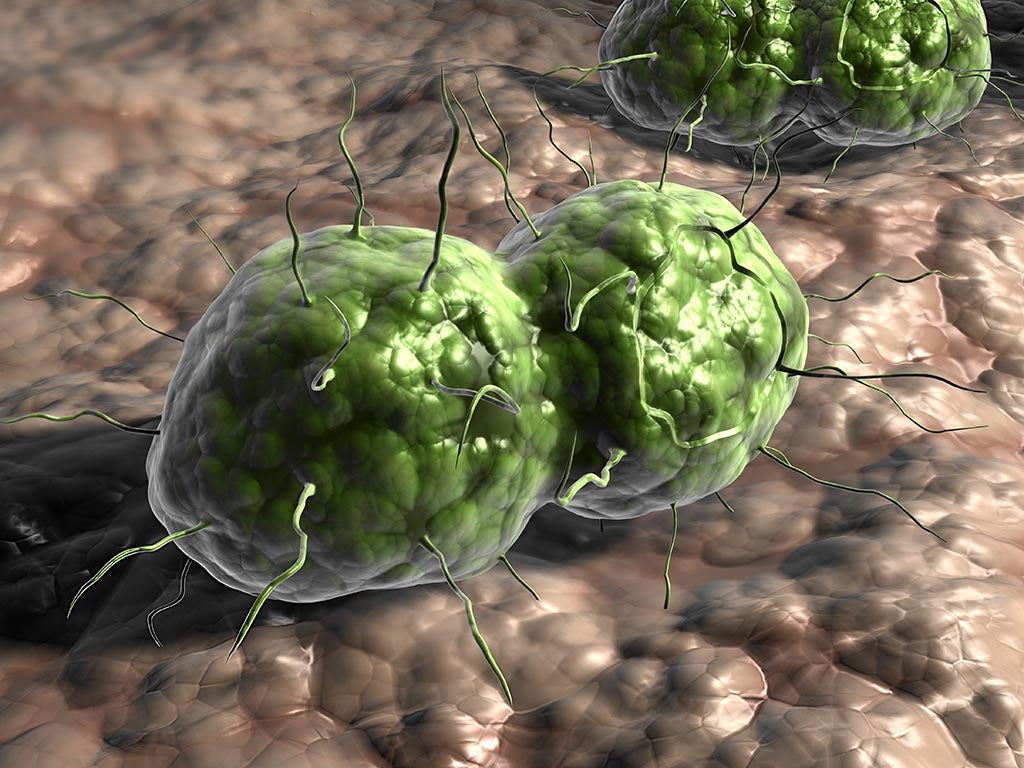Man contracts ‘super’-gonorrhoea that cannot be cured with usual antibiotics
'This is the first time a case has displayed such high-level resistance to both of these drugs and to most other commonly used antibiotics'

Your support helps us to tell the story
From reproductive rights to climate change to Big Tech, The Independent is on the ground when the story is developing. Whether it's investigating the financials of Elon Musk's pro-Trump PAC or producing our latest documentary, 'The A Word', which shines a light on the American women fighting for reproductive rights, we know how important it is to parse out the facts from the messaging.
At such a critical moment in US history, we need reporters on the ground. Your donation allows us to keep sending journalists to speak to both sides of the story.
The Independent is trusted by Americans across the entire political spectrum. And unlike many other quality news outlets, we choose not to lock Americans out of our reporting and analysis with paywalls. We believe quality journalism should be available to everyone, paid for by those who can afford it.
Your support makes all the difference.A British man has contracted a strain of "super"-gonorrhoea that cannot be cured with the usual antibiotics.
Public Health England (PHE) said it was the first time that first choice antibiotics were unable to cure the sexually transmitted disease because it had such a high level of resistance.
Although the man had a regular partner in the UK, he picked up the disease after a sexual encounter with a woman in south-east Asia.
His British partner tested negatively for the disease in a provisional check, but doctors are now tracing any other sexual partners of the man in a bid to stop it spreading.
Gonorrhoea, which is passed on through unprotected sexual contact, is usually treated with a combination of azithromycin and ceftriaxone antibiotics – but in this case the drugs failed.
“We are investigating a case who has gonorrhoea which was acquired abroad and is very resistant to the recommended first line treatment," said Dr Gwenda Hughes, Consultant Scientist and Head of Sexually Transmitted Infection (STI) Section at PHE.
“This is the first time a case has displayed such high-level resistance to both of these drugs and to most other commonly used antibiotics. We are following up this case to ensure that the infection was effectively treated with other options and the risk of any onward transmission is minimised.
She added: “PHE actively monitors, and acts on, the spread of antibiotic resistance in gonorrhoea and potential treatment failures, and has introduced enhanced surveillance to identify and manage resistant strains of infection promptly to help reduce further spread.”
The man is now being treated with another form of medication but it will not be known if it has worked until mid-April.
Left untreated, gonorrhoea which is caused by the Neisseria gonorrhoeae bacteria, can lead to complications including infertility and pelvic inflammatory disease.
Pregnant women can also pass on the disease to their baby during labour.
While many people do not have symptoms when they first contract the disease, it can cause a burning sensation when urinating, increased discharge which may be yellow or green and bleeding in women between periods.
Fears have been raised about the disease developing a resistance to antibiotics.
Dr Olwen Williams, the president of the British Association for Sexual Health and HIV told the BBC: "The emergence of this new strain of highly resistant gonorrhoea is of huge concern and is a significant development.”
He warned that the problem could get worse due to cuts to the health budget and clinic closures leaving sexual health services at “tipping point”.
Dr Hughes recommended using condoms with all new and casual sexual partners to reduce the risk of catching STIs in the first place.
Anyone who thinks they may be at risk is advised to visit a sexual health clinic for screening.
Join our commenting forum
Join thought-provoking conversations, follow other Independent readers and see their replies
Comments